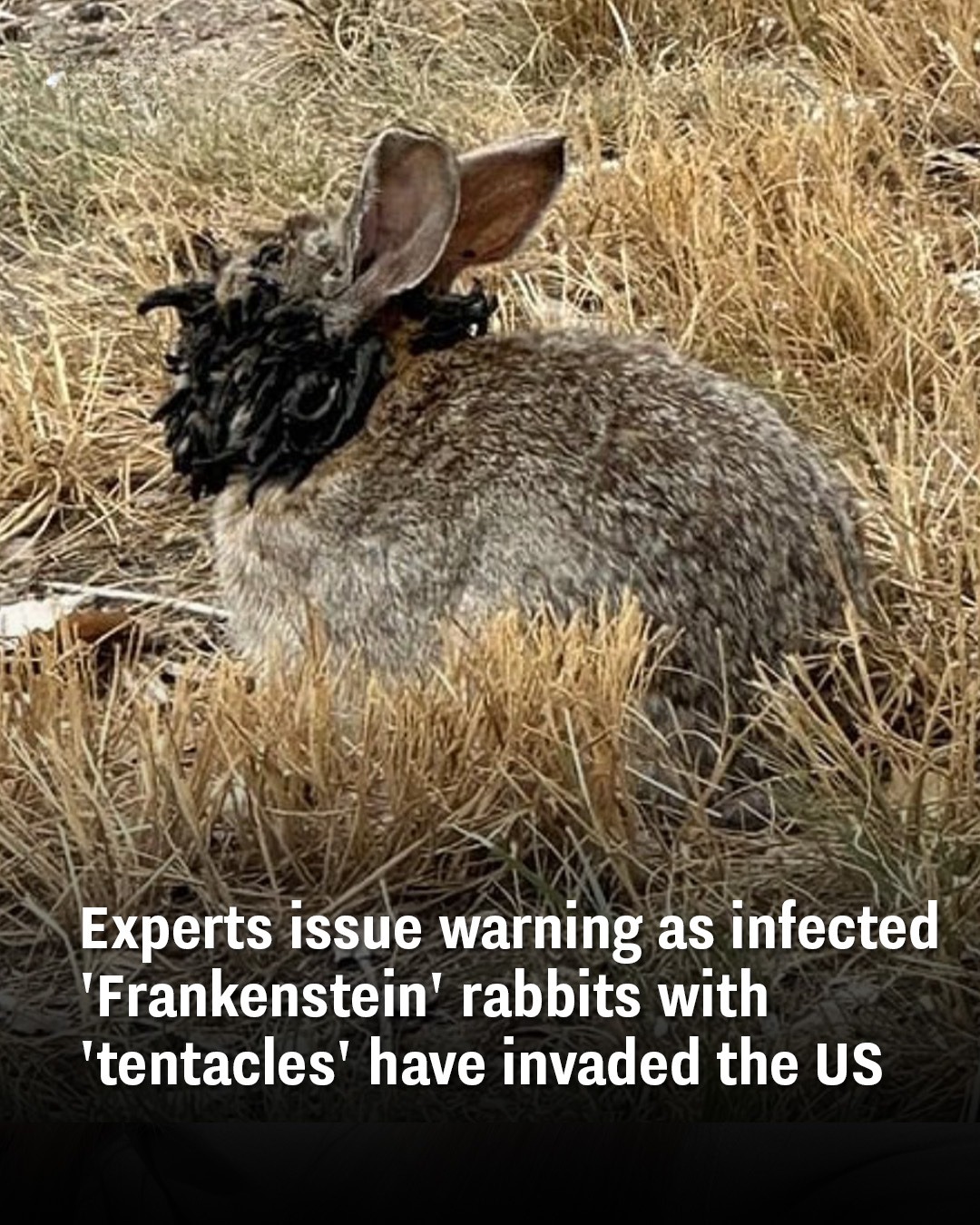A number of wild rabbits have been spotted hopping around with nightmarish facial growths across Fort Collins, Colorado.
Photographs of the tainted mammals taken by locals are not for the faint-hearted, that’s for sure, as the bunnies appear to be cursed with dark, stubby tentacles protruding out of their skin.
But this isn’t some Stranger Things-esque phenomenon.
It’s the cottontail papilloma virus (CRPV) at work – giving rise to the ‘jackalope’ myth (rabbit with antlers) in modern times – which causes benign, Lovecraftian tumours to materialise on the head of the animals.
What is the cottontail papilloma virus?
ScienceDirect explains that CRPV is defined as a papillomavirus that serves as the etiologic agent of cutaneous papillomatosis in rabbits, and has been extensively studied as a model for papillomavirus-induced carcinogenesis.
It can cause ‘rough, red, wartlike, keratinized, often pigmented lesions on the ears, eyelids, neck, shoulders, abdomen, and thighs’ of rabbits, and it isn’t known to be contageous to humans.

How is CRPV spread and caught in rabbits?
Researchers suggest that the ‘Frankenstein’ variations, as seen in these rabbits, could spread throughout the Midwest, carried by mosquitoes and ticks which bite the infected ones and transport their hideous conditions as opposed to direct contact between rabbits.
As for how CRPV affects the host, it all begins with red, raised spots on the skin that eventually mutate into warty masses.
The next phase of infection is the emergence of black tendrils covering the mouth, cheek and eye areas, although some of the initial warts can in fact transform into life-threatening skin cancer.
What has Colorado Parks and Wildlife (CPW) said about the infected rabbits?
According to CPW, per Eyewitness News 3, anybody who encounters the infected rabbits must avoid all contact and stay away from them, even though it doesn’t consider CPRV to be contagious across species.
